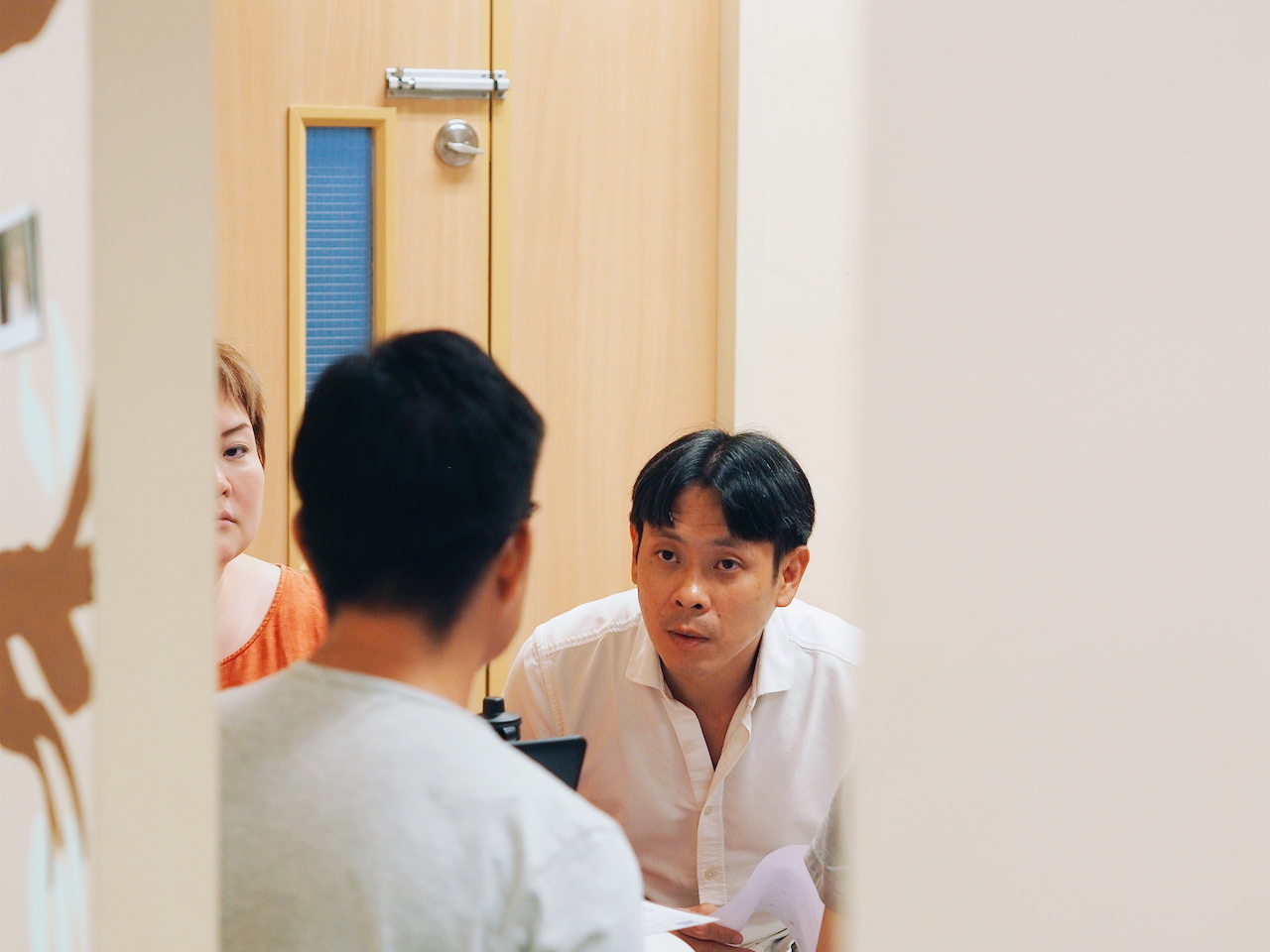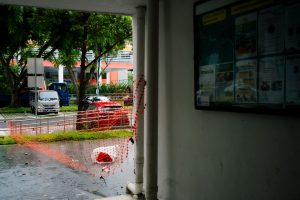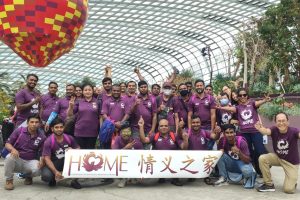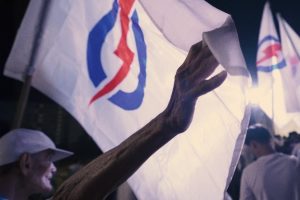All images by author.
This is the third piece in a series on failure—the f-word that terrifies many Singaporeans.
It’s not every day that I get to make an MP cry at a coffee shop in his GRC.
After I broach the topic of his late father’s significance in his life, Louis Ng chokes up. His eyes well, and he blinks furiously. The next thing I know, tears are rolling down his face, and his voice cracks. He pauses his meal for a few deep breaths, then he rubs his hands across his face. (Unfortunately, neither of us have a tissue to spare.)
“If I say more …” he trails off, before he can launch into a full-on bawling session. “I think I share with you the eulogy better.”
It’s okay, I reassure him, I think it’s fine to be vulnerable.
He smiles wryly, “Next question.”
Louis’s human, unfiltered display of emotion initially catches me off guard. It is unlike politicians in Singapore, most of whom seem to follow a playbook bent on curating the most polished public persona. As many journalists can attest, even a politician’s moments of authenticity have a tendency to seem rehearsed.
But Louis is known for being different. Last year, CNA ran a documentary calling him a “maverick politician”. Growing up, his dream was to be like Dian Fossey, the American primatologist and conservationist. But because Dian had been murdered, his mom “freaked out” at his ambition.
Since entering politics, the animal welfare activist and founder of ACRES has always preferred a hands-on approach. Four years ago, for instance, he took on the jobs of a healthcare worker, cleaner, and Grab driver to better understand the needs of the average Singaporean he serves.
So say what you will about MPs in general, but no one can say this one doesn’t try. Unlike the hawker centre and wet market walkabouts that are routine for many politicians in the lead-up to each General Election, however, his efforts don’t come off as off-putting or insincere. After all, the spirit of trying was ingrained in him by his late father from young. The man played a critical role in shaping Louis into the activist and politician he is today.
“My dad always told me to try. Whatever it is in life, you always try, and you try your best. If you fail, then you fail. He went to the extent where he didn’t stop me from smoking. He’d say if I wanted to smoke, then smoke, but go and use my own money. He placed a lot of trust in me,” he shares.
Three days later, Louis sends me the Facebook link to his eulogy for his dad, and I remember a line he repeated at least thrice during our interview: “A promise is a promise.”
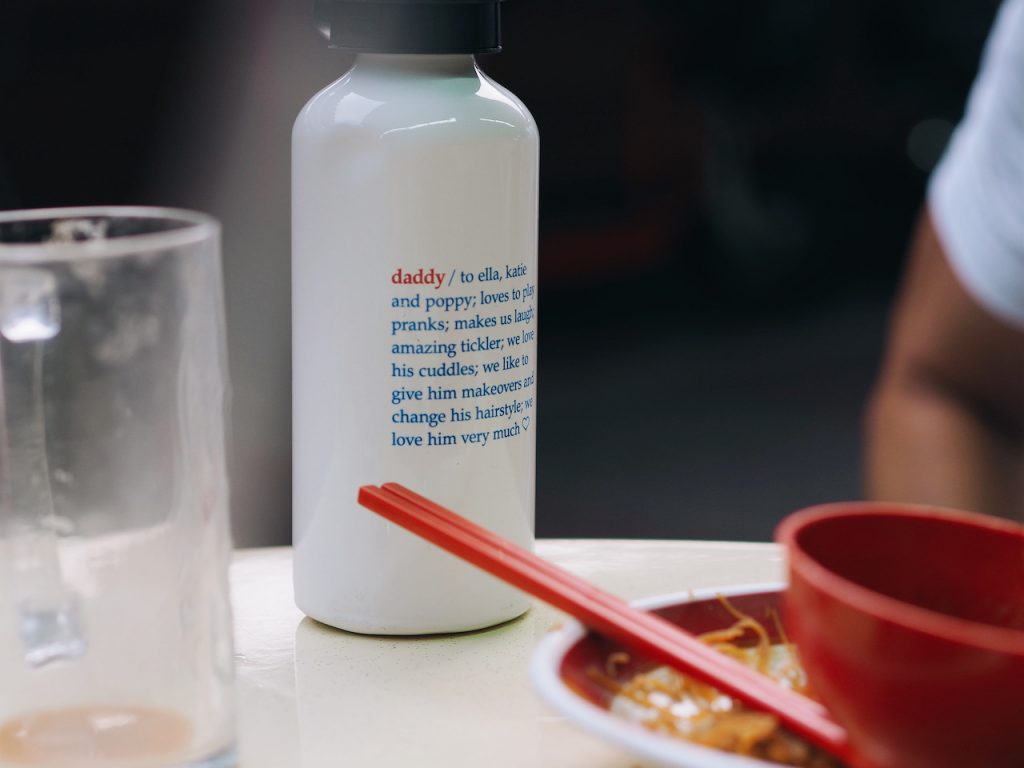
When Louis was first fielded as a PAP candidate during the 2015 General Elections, under Nee Soon GRC, some critics questioned whether an activist could or should be in Parliament since he might advocate for certain issues. But he was adamant this was precisely why he was needed.
“Activists know how to speak up, mobilise people, and create awareness. As an MP, I have to do the same thing,” he explains.
“I often tell people not to judge me by what they read, but by my actions, and I think I’ve lived up to that. I’ve spoken from my heart, whether it’s difficult or sensitive issues. If something needs to be raised, then I’ll do it. We do what’s right, although the right thing might not always be the popular thing and vice versa.”
Despite our short one-hour conversation, Louis manages to jump from social issue to marginalised community, clearly just as impassioned about each. He’s fought for buskers, domestic helpers, cleaners, refugees, single parents, childcare leave, and other gender issues, to name a few.
Just last month, he raised the concern that buskers were only allocated five specific busking sites after promising a busker, Tang Yuxuan, that he would speak up. (She passed away before he could meet her a second time to delve deeper into her concerns, so he met with her bandmates instead.)
The restriction to five busking sites means buskers faced the inconvenience of moving from one location to another with their equipment if their site is occupied by another busker. Sometimes, the taxi fare alone can off-set their busking earnings.
He understands that the busking community might be only “about 300 of them”, but “it’s still 300 people” whose rights he believes in fighting for.
“It’s not about what I feel is important, but about what society feels is important.”
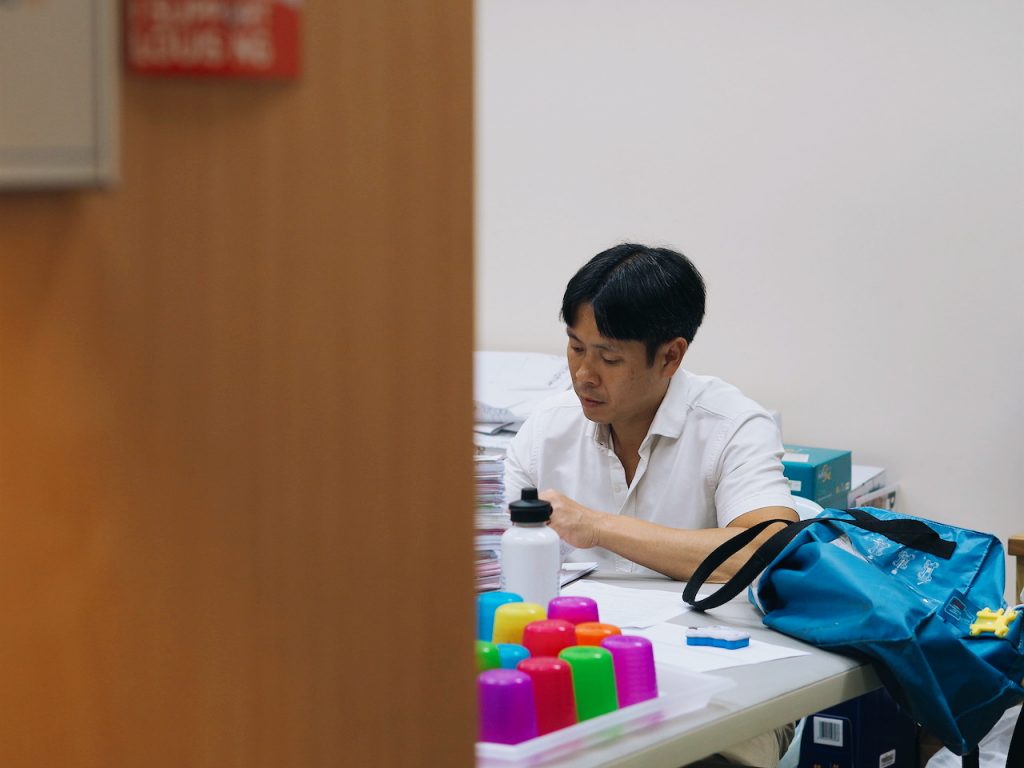
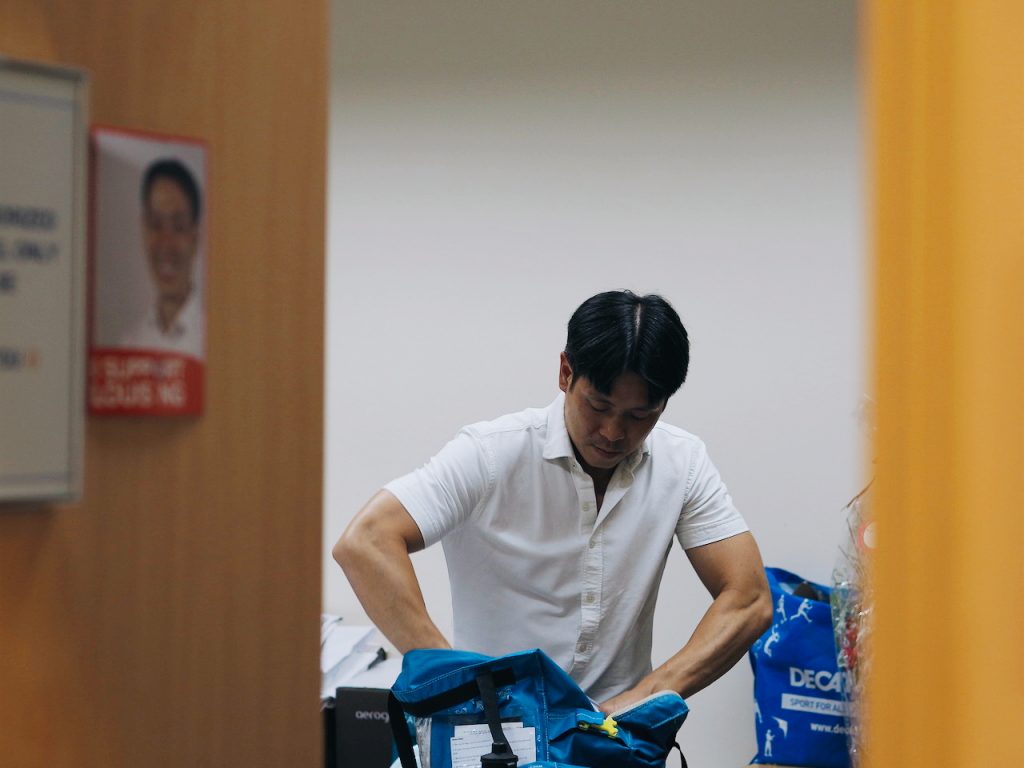
Closer to home, Louis has also fought for domestic helpers, much to many Singaporeans’ chagrin. Specifically, that domestic helpers should get mandatory paid annual home leave: for one week a year, they should be allowed to return to their home country. To this suggestion, one commenter lambasted him by asking why domestic helpers should be allowed more rights, since they already have free food, free water, and free shelter. The same commenter asked if the government would then grant parents paid leave during this one week to cover the domestic helper’s annual home leave.
“Surely we can spend one week a year with our children so that the person who spends 51 weeks with them can go back to be with her children,” he shares.
Along the same vein, Louis has argued for additional childcare leave in comparison to the existing six days, so that parents have more time to care for their sick child. He raised the issue after his three children consecutively came down with Hand, Foot, and Mouth Disease (HFMD). Since each cycle of HFMD takes a maximum of 14 days to clear, he felt the six days of childcare leave were sorely insufficient.
Currently, childcare leave is granted on a per parent basis, and not per child basis. This means a single-parent household with several children would suffer the most if their children were down with HFMD.
If additional childcare leave was not possible, Louis argued that employees should be allowed to use their existing personal medical leave entitlement in lieu of childcare leave by simply submitting their child’s MC.
TL;DR: Louis didn’t succeed. In fact, it wasn’t the first time these radical, proposed changes of his were rejected in Parliament. He also failed when he asked for domestic helpers to be granted mandatory paid annual home leave.
“The media likes to say I failed. But I don’t really see anything as failure. We haven’t failed—it’s just that we haven’t succeeded yet. The fight goes on,” he explains.
“I will never feel that I’ve done enough. I don’t have a set target, which is important. If there’s an important issue, I’ll speak up. If there’s a day when there’s nothing to speak up, I’ll keep my mouth shut and keep my hand down. But if there’s a chance for me to put my hand up, then that’s what I’ll do. A promise is a promise.”
Louis often tells reporters he’s a housefly when they ask what animal he resembles, simply because it’s “pretty hard to kill a housefly”. My heart sinks for him; this is a streak of stubbornness I am profoundly familiar with.
Like the MP, I’ve had to swallow failure’s bitter pill too often because I refused to give up. Past a certain point, stubbornness inevitably results in heartbreak and burnout. But when you’re an MP who’s so emotionally involved in fighting for other people’s needs and wants, you shoulder the crushing burden of disappointing several hundreds of thousands on top of your own expectations.
Because the marginalised issues and people he gravitates towards are not problems your average Singaporean cares about or thinks are important, Louis, in particular, experiences rejection in Parliament with higher frequency.
Yet, he argues, “I would say that’s the point of fighting for them.”
To balance out his natural intensity, perhaps the best way he can deal with his ‘failures’ is to approach them from a less emotional perspective: a single policy tweak impacts multiple aspects of society and affects varied demographics in their everyday routine, hence his radical suggestions can draw harsh criticism, no matter how well-intentioned.
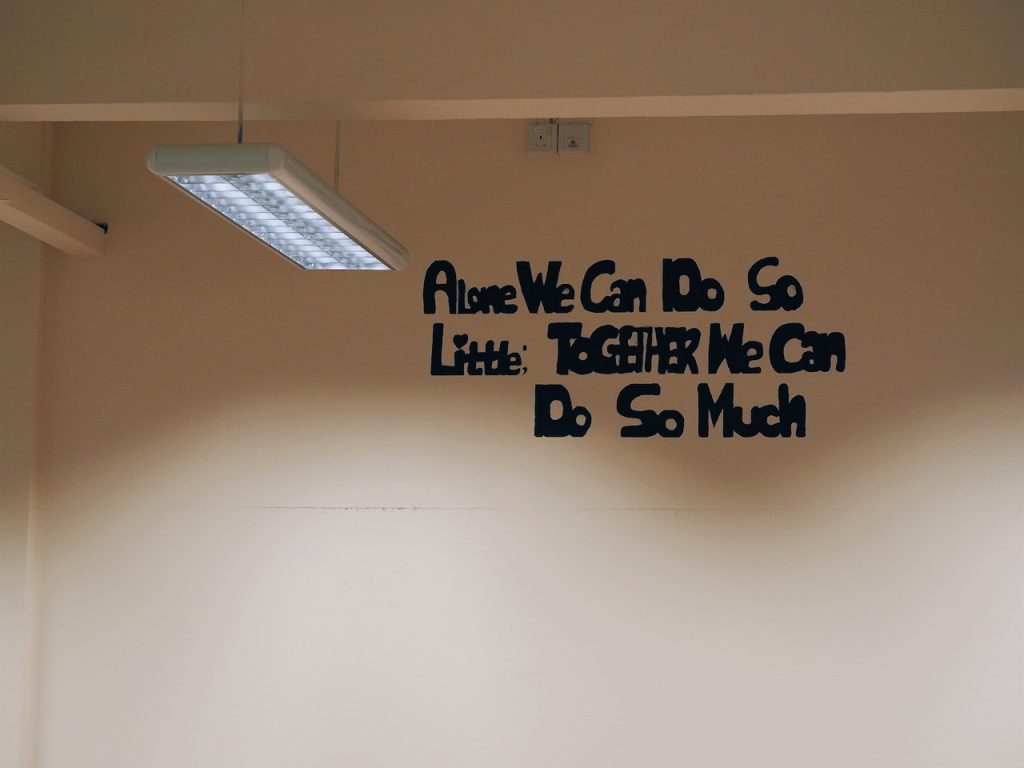
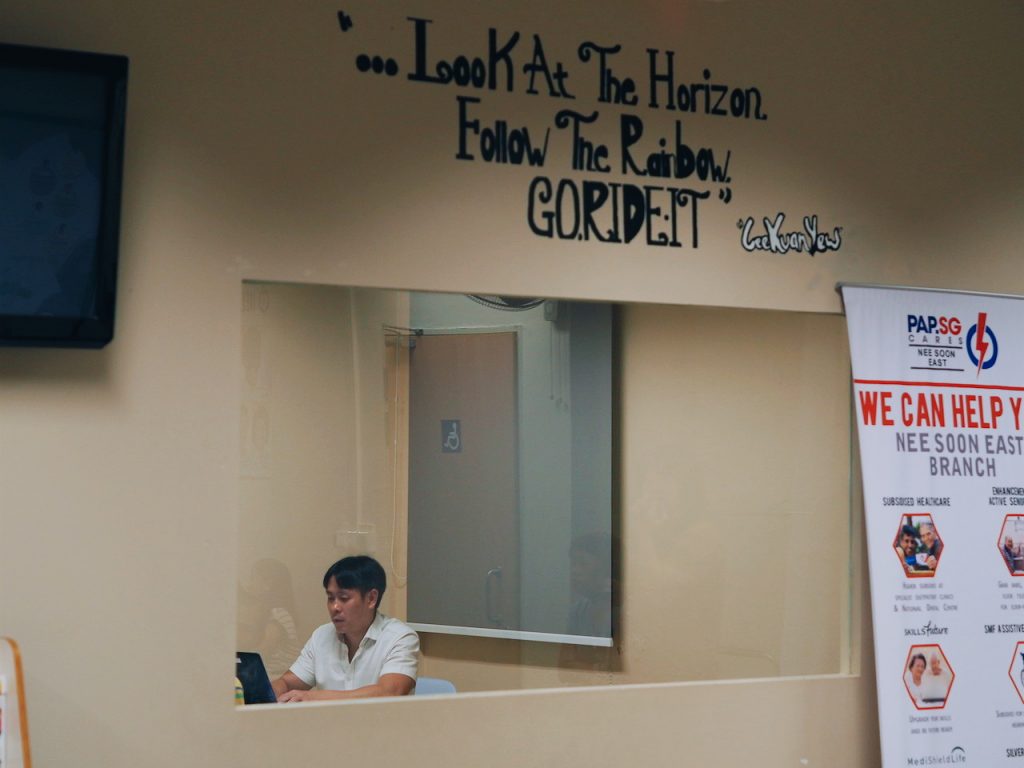
Anyone pragmatic might be unable to fathom how Louis does what he does despite every setback, but his motivation is simple. In the end, family is his priority. He wants to build a better world for his daughters by emulating the values that his own father instilled in him.
Thanks to his late father, who taught him that failure is a huge part of success, Louis seems to bounce back from ‘failure’ fairly unscathed. When he started ACRES, his father didn’t give him money to set it up, opting instead to watch his son fail in order to succeed.
“Sometimes when I attend panel discussions, youth will ask how I succeeded in getting ACRES from my bedroom to where it is right now. I tell them we succeeded through failing. The only way to learn is to fail. If you have succeeded your whole life, something is not right,” he says.
Because failure doesn’t faze Louis, he continues fighting for causes that most Singaporeans would sideline or completely neglect. One group he often gets flak for supporting is the Rohingya refugees. Many Singaporeans like to remind him that the Rohingyas didn’t vote for him, but he reiterates that being an MP means he can speak up about more than one issue.
In fact, he’s so passionate about the refugee issue that he visits a refugee school in Johor Bahru every month with Project Humanitarian: Hearts to Hands that includes volunteers from Darul Makmur mosque in Yishun. His daughter, Ella, has also visited the school with him.
In his time as an MP, he’s realised that while empathy is strongest among the younger generation, they also want to do something. To help Singaporeans believe they can take ownership of the changes they want to see in society, he starts by engaging them in municipal issues, such as choosing the kind of playground or facilities they want in their estate. He wants his team to take a step back and allow his residents to come up with their own ideas.
“If you give people a chance to show up, they will. With the mosque, the first time I mobilised them to meet the refugees was a few months ago. Now they come back because they want to help. Once you allow people to see that they’re making a difference, they will want to do their part,” he says.
Louis knows this better than anyone else: being on the ground is the most effective way of realising everyone has the power to change things one way or another. As long as there is progress, no matter how slow or how small, failure is merely a distraction.
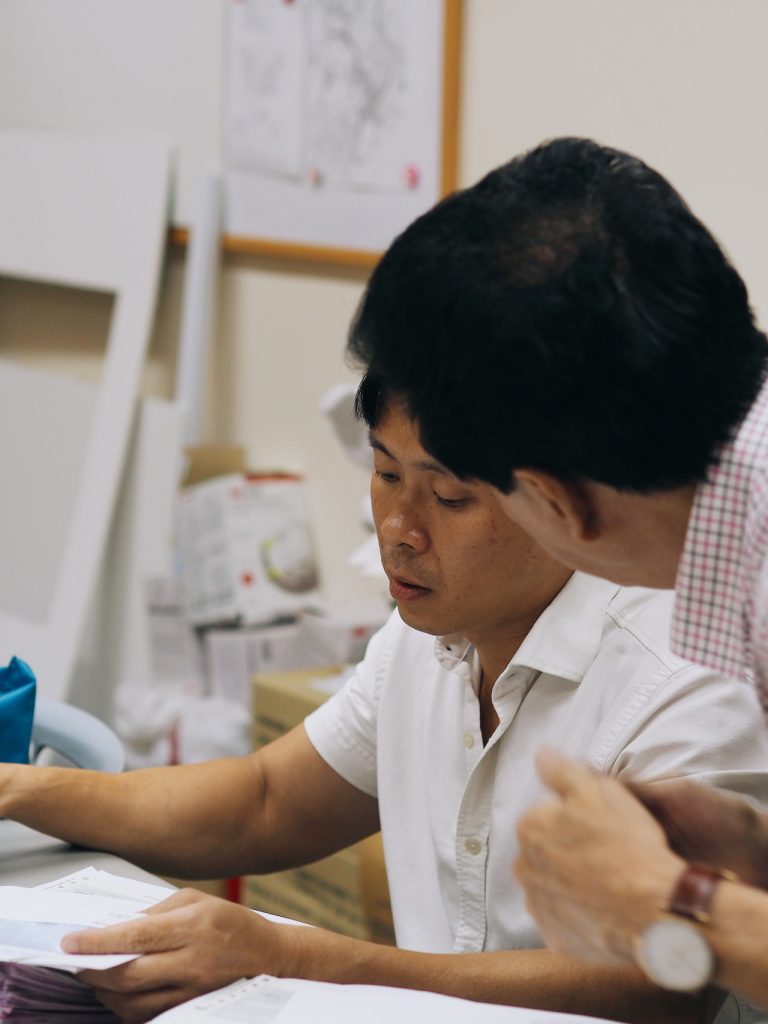
I decide to adopt Louis’s ethos for one night. When he invites me to accompany him to a meeting with a few of his residents around Yishun, before we head to his Meet-the-People session (MPS), I jump at the opportunity to see him in action.
On the way, he regales me with colourful anecdotes about his residents. We coincidentally pass a few of them who wave to him.
“Eh, I didn’t plant them ah,” he jokes.
First, we visit a family whose home was accidentally torched while charging their PMD. While others might have judged the family for being careless, there is only empathy from Louis, who even offered to pay for their hotel stay the night before while they were trying to get a rental unit in another flat nearby.
In their burnt unit, we linger for about 15 minutes, as Louis gets a sense of how the resident’s family is coping in the aftermath. They are grateful that at least their cats were rescued by their neighbours when the fire broke out.
Afterwards, we stop by a funeral to pay our respects. Louis sits with the family for about 20 minutes before we make a move.


When we finally arrive at his MPS, I’m already emotionally spent. As a former volunteer with my own GRC’s MPS, I know firsthand how taxing a volunteer’s job can be. You’re not merely a letter-writer who notes down residents’ problems; true listening requires you to be fully present so you can help residents figure out the best solution to their issue, and the public service agency that can assist. It also means you have to communicate their issues succinctly so that the MP is able to immediately understand what the resident needs after reading the letter.
Occasionally, it even requires you to pinpoint what the actual problem is and help residents refocus when they get carried away and waffle on.
Much like the MPS that I volunteered at, I fully expect Louis to sit in his own room, only meeting certain residents after they’ve already gotten their problems written down by one of his volunteers. But in the corner of the common room, he pulls up a standard classroom-size table, a couple of stools, and asks me to join him. Then he pulls up his laptop, signs into his account, and opens a new case file from one of the residents in the queue.
Even though I shouldn’t be surprised anymore by his hands-on nature, I am still mildly taken aback, especially because I know the amount of emotional labour undertaken by letter-writers. Evidently, when Louis isn’t meeting with residents who’ve specifically requested to see him, he pens the letters himself.
Over the next hour, he is simultaneously an MP, a listener to his residents, and a teacher to me. After jotting down notes, he patiently explains why he phrases certain requests with specific terms, and why some cases might appear like dead-ends so he tries to approach the problem from another angle.
Whatever the resident’s issue, we figure it out together, like project group mates. Even in his interpersonal relationships, there is a striking sense of camaraderie, something a lot like ‘kampong spirit’.
At 8:50 PM, when I finally leave his MPS, the dusty pink evening sky has faded. I’d only planned to spend an hour with Louis, but end up spending more than three.
Ironically, I could have written this story without his answers to specific interview questions. As it turns out, he reveals all of himself through his indefatigable actions, inability to emotionally detach, and overwhelming compassion for strangers.
Louis Ng wears his heart on his sleeve. It is a good look.
Do you think having a ‘never say die’ attitude is always a good thing? Tell us: community@ricemedia.co.

